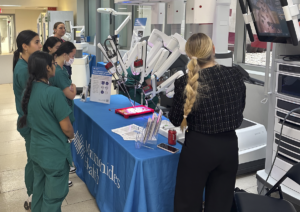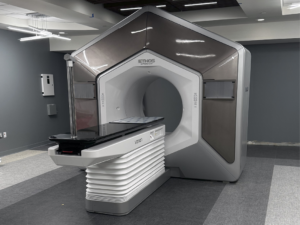Written by Dr. David Silver, Director of the Division of Urology and the Chief of Urologic Oncology, Maimonides Medical Center
Movember is here! Movember, which recognizes men’s health, is a great opportunity to take stock of your mental and physical health, develop new habits around diet and exercise, and get screened for prostate cancer, the most treatable cancer among men – if caught early.
Don’t put it off! A recent study from the University of Southern California showed that metastatic prostate cancer is on the rise while cancer screenings have been declining. Metastatic disease has risen by as much as 43% in men ages 75 and older and 41% in men ages 45 to 74. Why? Because prostate cancer screenings have been largely dropped from routine physicals. When caught early, prostate cancer is very treatable. But when caught too late, it could turn into metastatic disease.
Because many men are living longer lives, and sometimes remaining active into their 80s and 90s, cutting off screening at ages 74 or 75 is too early. Developing metastatic prostate cancer can take a much larger toll on the body as men age and their health reserves grow weaker.
A prostate-specific antigen (PSA) test is the first step in diagnosing prostate cancer. If test results are outside the normal range, urologists can monitor for those changes over time. If a PSA test does warrant further testing through an MRI and biopsy, and cancer is found, there are new treatment options that are less invasive than surgery and radiation, which can cause long-term urinary incontinence and sexual dysfunction.
Primary care doctors and family medicine doctors need to understand that doing a PSA test does not condemn the patient to a diagnosis of cancer and ultimately what they may consider drastic treatment with surgery or radiation. With proper testing, we can avoid having any patients suffer from complications of advanced prostate cancer. The sooner we diagnose patients the more likely we’ll find lower-grade, localized disease which we can now treat with minimally invasive focal high intensity focused ultrasound (HIFU) and other less invasive therapies that lower the risks of urinary incontinence and sexual dysfunction.
With newer technologies like Focal One HIFU, which integrates MRI images with guided ultrasound imaging, doctors are able to pinpoint the exact location of cancerous tumors and aim high-speed ultrasound waves to destroy them. This approach helps avoid collateral damage to surrounding tissue and nerves.
In some cases, doctors can even monitor the cancer without any intervention — a method called active surveillance. We can prevent patients from suffering with advanced disease with simple blood testing. Early cancer detection gives patients the option of active surveillance or, if treatment is necessary, minimally invasive therapies like focal HIFU.
So if you’ve been putting off your prostate screening, it’s time to refocus on some of the most important aspects of men’s health and make November the month you start your annual PSA testing.




